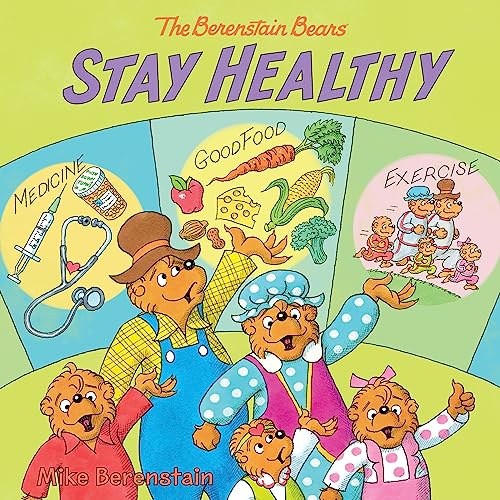Staying healthy is more than just a trend; it’s a lifestyle choice that can transform our lives. I often find myself reflecting on how small daily habits can lead to significant long-term benefits. From what we eat to how we move, every choice shapes our well-being.
In a world filled with quick fixes and fad diets, it’s easy to lose sight of the fundamentals. I’ve discovered that embracing simple yet effective strategies can make all the difference. Whether you’re looking to boost your energy or improve your overall health, understanding these ten ways to stay healthy can set you on the right path. Let’s dive into these essential tips that can help us live our best lives.
What Are 10 Ways to Stay Healthy?
- Eat a Balanced Diet
Eating a balanced diet’s essential for good health and wellness. I focus on whole foods like fruits, vegetables, whole grains, lean proteins, and healthy fats. The best food for health comes from varied sources, ensuring I get all the necessary nutrients.
- Stay Hydrated
Staying hydrated’s crucial for maintaining energy levels and supporting bodily functions. I drink at least eight 8-ounce glasses of water a day, adjusting for activity levels and climate. Proper hydration also promotes healthy skin.
- Exercise Regularly
Exercising regularly’s vital for maintaining a healthy body and mind. Engaging in at least 150 minutes of moderate aerobic activity weekly keeps my heart healthy. I incorporate strength training exercises at least twice a week for overall fitness.
- Get Enough Sleep
Getting enough sleep directly impacts my health. I aim for 7 to 9 hours of quality sleep each night, allowing my body to recover and rejuvenate. Good sleep hygiene, like maintaining a consistent bedtime, really helps improve my sleep quality.
- Manage Stress
Managing stress effectively’s important for maintaining mental health. I practice mindfulness techniques, like meditation and deep breathing, to help reduce stress levels. Using these practices regularly allows me to stay focused and calm.
- Avoid Smoking and Limit Alcohol
Avoiding smoking and limiting alcohol consumption are key to staying healthy. Smoke-free environments significantly reduce health risks, while watching my alcohol intake helps maintain bodily functions. I make sure to follow recommended guidelines for alcohol consumption.
- Maintain a Healthy Weight
Maintaining a healthy weight plays a significant role in my overall health. I keep track of my food intake and engage in regular physical activity to ensure my weight stays within a healthy range. This balance helps me reduce the risk of chronic diseases.
- Schedule Regular Check-ups
Scheduling regular check-ups is essential for preventive health care. I visit my healthcare provider annually for evaluations and screenings. Early detection of potential health issues allows for more effective treatment.
- Stay Informed About Health Products
Staying informed about health and wellness products helps me make educated choices. I explore reputable sources to find out which health products sell the most and which are most beneficial for my specific needs.
- Connect with Others
Connecting with others promotes emotional health. I engage with my friends and family regularly, whether in person or through virtual platforms. Building strong relationships supports my overall well-being and happiness.
Eating a Balanced Diet
Eating a balanced diet is essential for maintaining good health and wellness. It fuels my body with the necessary nutrients to function effectively. Here are some key components of a balanced diet.
Incorporating Fruits and Vegetables
I prioritize incorporating fruits and vegetables into my meals for optimal health. Aim to fill half your plate with a variety of colors, as different hues represent different nutrients. For example, leafy greens provide essential vitamins A and K, while orange vegetables like carrots supply beta-carotene. According to the CDC, consuming at least 2 cups of fruits and 2.5 cups of vegetables daily can reduce the risk of chronic diseases. I often blend a fruit smoothie in the morning, adding spinach or kale for an extra veggie boost.
Choosing Whole Grains
I focus on choosing whole grains instead of refined grains to support my overall health. Whole grains, such as brown rice, quinoa, and whole wheat bread, retain their nutrients and fiber. Research shows that incorporating whole grains can lower the risk of heart disease and aid in digestion. I switch to whole-grain pasta and toast when cooking, which not only enhances flavor but also adds nutritional value to my meals.
Limiting Processed Foods
I make a conscious effort to limit processed foods in my diet. Processed items often contain high levels of sugar, sodium, and unhealthy fats, contributing to various health issues. Instead of grabbing packaged snacks, I choose whole-food alternatives, like nuts, yogurt, or homemade granola bars. A study by the Harvard School of Public Health indicates that reducing processed food intake can lead to improved energy levels and better weight management. By reading ingredient labels and opting for fresh, natural foods, I maintain a healthier diet overall.
Staying Hydrated
Staying hydrated is essential for overall health. Drinking enough water supports bodily functions, boosts energy levels, and improves mood. Here are some practical tips for maintaining hydration.
Drinking Plenty of Water
I make it a habit to drink plenty of water throughout the day. Aiming for about 8 cups (64 ounces) daily is a general guideline, but individuals may need more or less based on activity levels and climate. I carry a reusable water bottle to remind myself to drink regularly. Setting reminders on my phone or using apps can also help track my intake. Incorporating water-rich foods, such as cucumbers, oranges, and watermelon, adds additional hydration throughout the day. Remembering to drink before, during, and after physical activity is vital to avoid dehydration.
Reducing Sugary Beverages
I’ve learned to reduce sugary beverages for better hydration. Soda, sweetened teas, and energy drinks often contain empty calories and can lead to dehydration. Replacing these drinks with water or herbal teas is a simple switch I make. When socializing, I opt for sparkling water with a splash of lemon or lime instead of soda. Exploring various flavored water options, such as infusing my water with fruits or herbs, keeps my hydration exciting and enjoyable. This change not only helps me feel better but also supports my overall health by reducing sugar intake.
Incorporating Herbal Teas
I often incorporate herbal teas into my hydration routine. Herbal teas are not only soothing but can also contribute to daily fluid intake. Options like peppermint, chamomile, and ginger provide additional health benefits, such as aiding digestion or promoting relaxation. I enjoy drinking these warm or iced during different seasons. Additionally, herbal teas are caffeine-free, which means they won’t contribute to dehydration like caffeinated beverages might. Experimenting with different flavors keeps me engaged, and adding a bit of honey enhances the taste without adding excessive sugar.
By focusing on these hydration strategies, I can support my health and wellness journey more effectively.
Engaging in Regular Physical Activity
Engaging in regular physical activity is crucial for maintaining overall health and wellness. Incorporating various forms of exercise into my routine not only helps me stay physically fit but also enhances my mental well-being.
Finding an Enjoyable Exercise Routine
Finding an enjoyable exercise routine is the first step to staying active. I prefer activities that ignite my passion, like dancing, hiking, or cycling. By experimenting with different exercises, I’ve discovered what I truly love. Joining group classes or clubs also keeps me motivated and inspired. For beginners, I recommend starting with low-impact workouts, gradually increasing the intensity as my fitness level improves. Advanced users might explore specialized training, like CrossFit or martial arts. Remember, it’s all about enjoyment—when exercise feels fun, I’m more likely to stick with it long term.
Setting Realistic Fitness Goals
Setting realistic fitness goals helps me maintain focus and motivation. I start by determining what I want to achieve, whether it’s running a 5K or mastering a new yoga pose. Using the SMART criteria—Specific, Measurable, Achievable, Relevant, Time-bound—I break my goals into manageable steps. For example, if I aim to run 5K in three months, I create a training schedule that gradually increases my distance each week. Celebrating small milestones along the way keeps me motivated. Consistency is key; by staying committed to my goals, I can recognize significant improvements in my strength and endurance over time.
Incorporating Strength Training
Incorporating strength training into my fitness routine is vital for building muscle and boosting metabolism. I schedule at least two sessions per week, focusing on all major muscle groups. I start with bodyweight exercises like push-ups and squats, progressing to weights or resistance bands as I gain strength. For beginners, focusing on form and technique is crucial to prevent injuries. Advanced users can benefit from compound movements, which work multiple muscle groups at once, as well as integrating supersets to maximize efficiency. Strength training not only improves physical health but also contributes to overall vitality—it’s essential for maintaining a balanced, healthy lifestyle.
Prioritizing Mental Health
Mental health plays a pivotal role in overall wellness. By prioritizing mental health, I can enhance my physical health, emotional resilience, and quality of life.
Practicing Mindfulness and Meditation
Practicing mindfulness and meditation helps me stay grounded and reduce stress. I set aside at least 10 minutes daily to focus on my breath and observe my thoughts without judgment. I find guided meditation apps like Headspace or Calm particularly useful for beginners, as they offer structured sessions that cater to various levels. For a simple exercise, I can sit comfortably, close my eyes, and focus on my breath, counting each inhale and exhale. By gradually increasing my meditation time, I can build a sustainable practice that fosters inner peace and improves mental clarity.
Seeking Support from Friends and Family
Seeking support from friends and family is crucial for mental well-being. I make an effort to reach out and connect with loved ones regularly, whether it’s through phone calls, video chats, or in-person visits. I recognize that sharing my thoughts and feelings can lead to emotional release and strengthen my relationships. Additionally, I attend social gatherings or join community groups to expand my support network. Whenever I feel overwhelmed, I remind myself that asking for help is a sign of strength, and supportive conversations often provide new perspectives and solutions.
Allocating Time for Hobbies
Allocating time for hobbies is vital for maintaining mental health. I actively carve out time each week to engage in activities I enjoy, like painting, gardening, or playing an instrument. This not only nurtures my creativity but also serves as a great outlet for stress relief. I check local classes or online workshops to learn new skills related to my hobbies, enriching my life even further. I remind myself that taking breaks to indulge in my passions boosts my happiness and productivity, allowing me to return to my responsibilities feeling recharged and inspired.
Getting Enough Sleep
Getting quality sleep is essential for maintaining overall health. It affects everything from mental clarity to physical well-being. Below are practical strategies to help improve your sleep quality.
Establishing a Sleep Schedule
Establishing a sleep schedule lays the foundation for restful nights. I suggest going to bed and waking up at the same time every day, even on weekends. Consistency helps regulate your body’s internal clock, making it easier to fall asleep and wake up. I find that aiming for 7-9 hours of sleep is ideal for most adults. Additionally, try to incorporate a calming bedtime routine, like reading a book or practicing relaxation techniques before sleep.
Creating a Comfortable Sleep Environment
Creating a comfortable sleep environment is vital for achieving quality rest. I recommend keeping your bedroom cool, ideally between 60-67°F (15-19°C), to promote sleepiness. I also find that blackout curtains can block outside light, creating a darker space that encourages deeper sleep. Using a white noise machine or earplugs can help drown out distracting sounds. Finally, investing in a comfortable mattress and pillows tailored to my sleep position makes a noticeable difference in my sleep quality.
Limiting Screen Time Before Bed
Limiting screen time before bed is crucial for restful sleep. I find that the blue light emitted by phones, tablets, and computers can interfere with melatonin production, making it harder to fall asleep. I aim to turn off all screens at least an hour before bed. Instead, I opt for relaxing activities like journaling or listening to calming music. If I need to use screens, I use blue light blocking glasses to mitigate the effects.
By following these practices, I can enhance my sleep quality, ensuring I feel refreshed and energized for the day ahead.
Maintaining a Healthy Weight
Maintaining a healthy weight is essential for overall wellness and longevity. It involves balancing the energy you consume with the energy you expend, allowing you to achieve and sustain a weight that works best for you. Here are structured approaches to help you with this vital aspect of health.
Tracking Food Intake
Tracking my food intake can be a game changer for maintaining a healthy weight. I use various apps like MyFitnessPal or Lose It! to log what I eat, which helps me become more conscious of my choices. I set a daily calorie goal based on my weight needs, ensuring I receive an adequate balance of macronutrients—carbohydrates, proteins, and fats. By paying attention to serving sizes and ingredients, I can identify patterns in my eating habits. For example, I noticed that when I consistently snack on healthy options like fruits and nuts, my overall energy levels improve. Since I value fruit choices packed with vitamins, I aim to include them in my meals every day. Keeping a food diary not only holds me accountable but also helps in recognizing emotional triggers affecting my eating patterns.
Understanding Portion Control
Understanding portion control is vital in my journey to maintaining a healthy weight. I always visualize my plate as divided into sections: half should be veggies and fruits, one quarter for whole grains, and the other quarter for protein. This method ensures I get a diverse range of nutrients while managing my caloric intake. I also avoid eating directly from large packages, as this can lead to overeating. Using smaller plates tricks my brain into thinking I’m eating more than I actually am. When dining out, I often ask for half of my meal to be packed to-go right from the start, preventing bumps in calorie intake. Strategies like these help me enjoy my meals without overindulgence, keeping portion sizes in check and promoting satisfaction.
Incorporating Physical Activity
Incorporating physical activity into my daily routine helps keep my weight in check. I strive to engage in at least 150 minutes of moderate aerobic exercise weekly, alongside strength training twice a week. I find it important to choose activities I genuinely enjoy, whether it’s dancing, biking, or hiking, as this keeps me motivated. Adding movement throughout the day is also a priority; I take regular breaks to stretch or walk, especially during long work hours. Using a fitness tracker helps me monitor my daily steps, pushing me to reach at least 10,000 steps each day. On days when I can’t make it to the gym, I leverage online workout videos to maintain my routine. By keeping my body active, I burn calories, boost my metabolism, and cultivate a feeling of accomplishment, all crucial for balancing my energy level.
Avoiding Tobacco and Excessive Alcohol
It’s crucial to steer clear of tobacco and moderate alcohol consumption to maintain optimal health.
Recognizing the Risks of Smoking
Recognizing the risks of smoking is the first step towards a healthier lifestyle. Smoking harms nearly every organ in your body, increasing the risk of diseases like lung cancer, heart disease, and stroke. I remember seeing a statistic from the CDC that nearly 480,000 Americans die from smoking-related illnesses each year. Keeping this in mind can motivate me to avoid tobacco completely. It’s not just about personal health; secondhand smoke poses dangers to others as well, particularly children and pregnant women. Quitting smoking can significantly improve overall health, enhance lung function, and even extend life expectancy.
Moderating Alcohol Consumption
Moderating alcohol consumption is essential for preserving my health. While some studies suggest that moderate drinking may have certain benefits, excessive alcohol intake can lead to liver damage, addiction, and increased risk of various cancers. I aim to stick to the recommended guidelines, which suggest that women should limit alcohol to one drink per day and men to two. A drink is often defined as 12 ounces of beer, 5 ounces of wine, or 1.5 ounces of distilled spirits. Choosing alcohol-free days during the week can also help me maintain a balanced approach, reduce dependency, and prevent negative health effects.
Seeking Help for Addiction
Seeking help for addiction is a vital action for anyone struggling with tobacco or alcohol. It’s okay to ask for support; many resources are available. I found out that organizations like Alcoholics Anonymous (AA) and the National Cancer Institute (NCI) offer assistance to those looking to quit smoking or drinking. Professional counseling or rehab programs tailored to individual needs can also be effective. Additionally, speaking with a healthcare provider can open doors to treatment plans and alternative health products aimed at enhancing overall well-being. Employing mobile apps for tracking progress can further empower me to stay on the right path. It’s never too late to seek help, and taking that first step can set the stage for a healthier future.
Managing Stress Effectively
Managing stress effectively is vital for overall well-being. It involves adopting various strategies to maintain mental peace and physical health.
Practicing Relaxation Techniques
Practicing relaxation techniques can significantly reduce stress levels. Techniques like deep breathing, progressive muscle relaxation, and guided imagery help calm the mind. For beginners, start with deep breathing by inhaling through the nose, holding the breath for a few seconds, and exhaling slowly through the mouth. Advanced users can explore mindfulness meditation, which involves focusing on the present moment. Apps like Headspace or Calm are excellent resources for guided sessions. Incorporating these practices into a daily routine can enhance relaxation and improve resilience against stress.
Keeping a Journal
Keeping a journal serves as an effective outlet for stress management. Writing down thoughts and feelings allows me to process emotions and reflect on daily experiences. I typically dedicate a few minutes each evening to jot down highlights and challenges of the day. For beginners, simply noting down three things I’m grateful for can shift my mindset positively. Advanced users might explore structured journaling techniques, such as bullet journaling, to track not just emotions but also goals and habits. I find that this practice minimizes anxiety while boosting self-awareness and emotional clarity.
Engaging in Physical Activities
Engaging in physical activities is one of my favorite ways to combat stress. Exercise releases endorphins, which can elevate mood and promote relaxation. I enjoy diverse physical activities, from brisk walking to yoga, which I find both physically and mentally rejuvenating. For beginners, starting with a 20-minute daily walk can make a meaningful difference. Advanced users might integrate high-intensity interval training or team sports for a dynamic workout. It’s paramount to choose activities that I genuinely enjoy, as this sustains motivation and enhances the overall stress-relieving benefits.
By employing these strategies, I can manage stress effectively, paving the way for a healthier and more balanced life.
Scheduling Regular Health Check-ups
Scheduling regular health check-ups is essential for maintaining good health and preventing potential issues. Check-ups provide an opportunity for early detection of health problems and ensure I’m up-to-date on vaccinations and screenings.
Understanding the Importance of Preventive Care
Understanding the importance of preventive care helps me stay proactive about my health. Regular health check-ups allow healthcare professionals to assess my overall wellness, catch any early signs of disease, and provide tailored advice for a healthier lifestyle. For instance, routine screenings for conditions like diabetes or high blood pressure can significantly reduce health risks. Preventive care not only catches issues early but also saves money in the long run, making it an invaluable part of my wellness strategy.
Keeping Track of Vaccinations
Keeping track of vaccinations is crucial for protecting myself from preventable diseases. I make sure to consult my healthcare provider about my vaccination schedule, including flu shots and other recommended immunizations, to stay healthy. It’s important to maintain updated records, as some vaccinations require boosters after a specific time. For example, staying on schedule for tetanus shots can prevent serious infections. By keeping my vaccinations up-to-date, I contribute to my health and the safety of my community.
Monitoring Key Health Indicators
Monitoring key health indicators provides a clearer picture of my overall health. I focus on essential metrics, such as blood pressure, cholesterol levels, and body mass index (BMI), as they can reveal important information about my health status. I engage in discussions with my healthcare provider on how to interpret these indicators and make necessary adjustments to my lifestyle. For instance, if my cholesterol levels are higher than recommended, I might adjust my diet by increasing fiber intake and reducing saturated fats. By regularly monitoring these indicators, I empower myself to make informed decisions about my health.
Building a Supportive Social Network
A supportive social network is crucial for maintaining both physical and mental health. Surrounding myself with positive influences can significantly enhance my wellness journey and motivate me to stay on track. Here are some effective strategies to build that network.
Connecting with Like-minded Individuals
Connecting with like-minded individuals can be incredibly empowering for staying healthy. I can actively seek out groups or clubs that share my interests, whether it’s fitness, nutrition, or general well-being. This includes joining local running clubs or healthy cooking classes, where I can meet others who prioritize health. For example, attending yoga sessions not only improves my physical flexibility but also allows me to bond with others who value mindfulness. Using social media platforms, I can connect with groups focused on specific health topics, exchanging tips and support.
Engaging in Community Activities
Engaging in community activities helps forge strong connections while contributing to my wellness. Volunteering at local health events or participating in charity runs can introduce me to people who share my values. For instance, I can join community gardens, which foster social interaction while promoting healthy eating habits. By participating in local health fairs, I can also learn more about health and wellness products and what works best for different lifestyles. Community fitness classes provide another excellent opportunity to meet others in person and stay active together.
Utilizing Online Support Groups
Utilizing online support groups can offer a vast network of encouragement and advice. I can find forums that focus on various health topics, from weight loss to stress management, where members share experiences and challenges. Platforms like Facebook or specialized apps like MyFitnessPal connect me with numerous individuals on similar journeys. For instance, I can join discussions about the healthiest thing for skin or tips for maintaining a balanced diet. Online groups provide resources, accountability, and motivation, especially when in-person connections are difficult.
Building a solid social network—both online and offline—can significantly influence my health journey. By connecting with others, actively engaging in community activities, and leveraging online groups, I can create a supportive environment that fosters both physical and emotional well-being.
Conclusion
Staying healthy is a journey that requires commitment and consistency. By adopting simple habits and making informed choices, I can create a lifestyle that promotes both physical and mental well-being. It’s about finding balance and integrating these practices into my daily routine.
As I focus on nourishing my body with whole foods and staying active, I also prioritize my mental health through mindfulness and social connections. Remembering that health isn’t just about the absence of illness but a holistic approach to living well is key.
Every small step I take contributes to a healthier, happier life. Embracing this journey with patience and determination will lead me to the vibrant health I strive for.
Frequently Asked Questions
What are the key elements for staying healthy?
Staying healthy revolves around maintaining a balanced diet, regular physical activity, quality sleep, effective stress management, and regular health check-ups. By focusing on these elements, you can create a sustainable lifestyle that promotes long-term wellness.
Why is a balanced diet important?
A balanced diet is crucial for providing essential nutrients that support bodily functions and reduce the risk of chronic diseases. It should include a variety of whole foods, fruits, vegetables, and whole grains while limiting processed foods.
How much water should I drink daily?
It is generally recommended to drink about 8 cups (64 ounces) of water daily. This helps maintain hydration, energy levels, and overall health, though individual needs may vary based on activity level and climate.
What types of exercise should I incorporate into my routine?
Incorporate both aerobic and strength training exercises into your routine. Aim for at least 150 minutes of moderate aerobic activity per week along with strength training exercises at least twice weekly to enhance overall fitness.
How can I improve my sleep quality?
To improve sleep quality, establish a consistent sleep schedule, create a calming bedtime routine, and limit screen time before bed. Aim for 7-9 hours of sleep in a comfortable sleep environment for optimal rest.
What role does mental health play in overall wellness?
Mental health is vital for overall wellness as it affects emotional resilience, stress management, and quality of life. Practicing mindfulness, engaging in hobbies, and maintaining social connections contribute positively to mental well-being.
How can I effectively manage stress?
Effective stress management can be achieved through relaxation techniques, regular physical activity, and journaling. Engaging in enjoyable hobbies and maintaining connections with friends and family also help reduce stress levels.
Why is regular health check-up important?
Regular health check-ups allow for early detection of potential health issues, enabling timely intervention and personalized health advice. They also help monitor vital health indicators to enhance overall well-being.
How can I maintain a healthy weight?
Maintain a healthy weight by being mindful of your dietary choices, practicing portion control, and incorporating regular physical activity into your life. Utilize food-tracking apps for guidance and stay consistent with healthy habits.
What are the risks of smoking and excessive alcohol consumption?
Smoking contributes to numerous health problems, including respiratory diseases and cancer, while excessive alcohol consumption increases the risk of addiction and associated health issues. Moderation and seeking help for addiction are crucial for long-term health.






